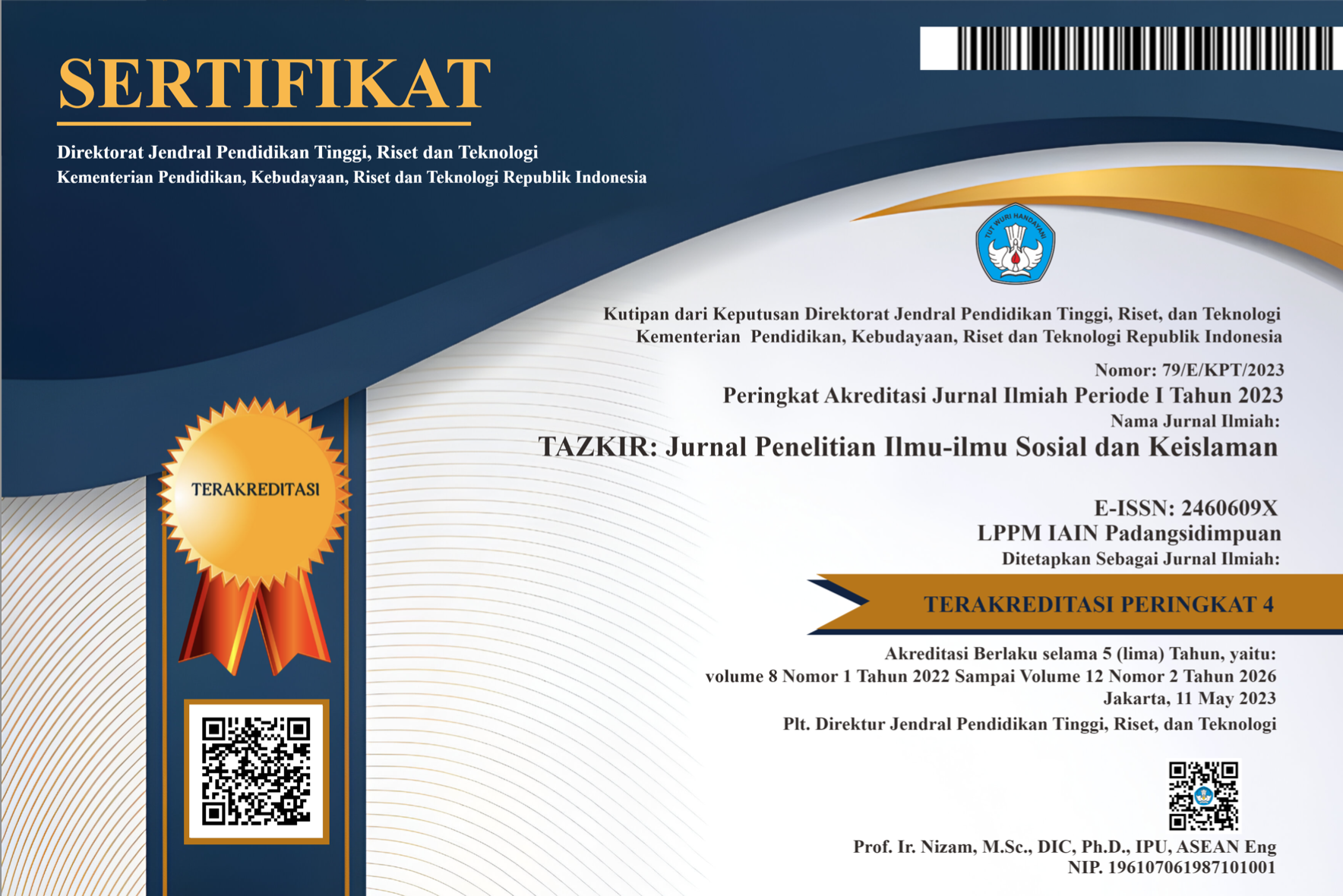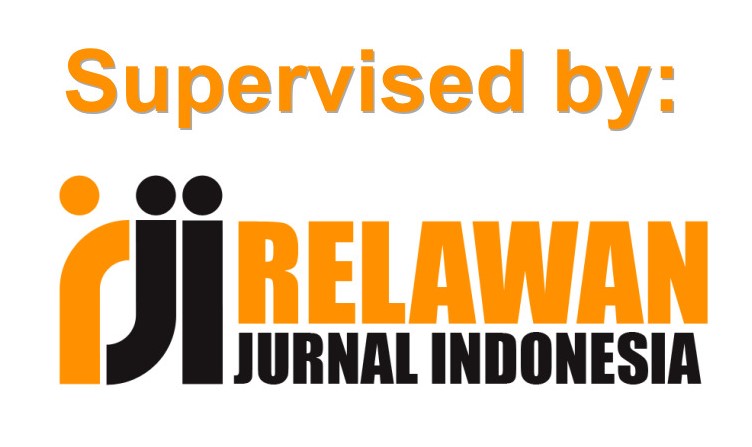Tinjauan Ekonomi Syariah Terhadap Legalitas Penghasilan Youtuber Di Era Digital
Abstract
This study aims to analyze the legality of YouTubers' income from the perspective of sharia economics and the maqasid of sharia, and to identify the criteria for the halalness of their income sources. The study focuses on the suitability of content, types of advertisements, and forms of contracts used in collaboration with third parties, as well as their relevance to sharia principles. The research method used is a qualitative method with a descriptive-analytical approach. Data were collected through a literature review of fatwas from the Indonesian Ulema Council (MUI), muamalah fiqh literature, and previous research related to the YouTuber profession, sharia economic contracts, and the principles of maqasid of sharia. The analysis was conducted by examining the conformity of YouTubers' income practices with the principles of halal, thayyib, and maslahah, and assessing the implementation of contracts such as syirkah and ju'alah based on sharia provisions. The results of the study indicate that YouTubers' income can be categorized as halal if the content and advertisements broadcast are in accordance with sharia principles, and the cooperation contract fulfills the pillars and requirements of validity, free from elements of usury, gharar, and maysir. From a maqasid sharia perspective, such income must support the goals of preserving religion (hifzh al-din), preserving wealth (hifzh al-mal), and preserving reason (hifzh al-‘aql). MUI Fatwa No. 24 of 2017 serves as the primary guideline for ensuring that YouTubers' digital activities are compliant with sharia, enabling this profession to provide broad benefits, strengthen moral values, and maintain Islamic integrity in the digital age.
Keywords
Full Text:
PDFReferences
Amu, Muhammad Raihan, and Nurlaila Isima. “Menjembatani Teknologi Dan Syariah: Tinjauan Hukum Islam Atas Monetisasi YouTube AdSense.” Al-’Aqdu: Journal of Islamic Economics Law 4, no. 1 (2024): 54–72. http://dx.doi.org/10.30984/ajiel.v4i1.3190.
Anshori, Ahmad. Hukum Penghasilan Konten Kreator, Youtuber, TikTok, Instagram. Mei 2025. https://bimbinganislam.com/hukum-penghasilan-konten-kreator-youtuber-tiktok-instagram/.
Arfan, Abbas, Iklil Athroz Arfan, Abdulrahman Alkoli, and Ramadhita Ramadhita. “The Implementation of Maqashid Sharia: Heterogeneity of Scholars’ Fatwas Towards Islamic Banking Contracts.” Legality : Jurnal Ilmiah Hukum 32, no. 1 (2024): 105–28. https://doi.org/10.22219/ljih.v32i1.32170.
Ayuningtyas, Felicia Neva. “Strategi Promosi Endorsement Oleh Digital Influencer Dalam Etika Bisnis Islam.” Jurnal Ekonomika Dan Bisnis Islam 4, no. 3 (2022): 160–73. https://doi.org/10.26740/jekobi.v4n3.p160-173.
Bambang, S. Penghasilan Bekerja Sebagai Youtuber, Apa Hukumnya. September 27, 2021. https://hidayatullah.com/konsultasi/fikih-kontemporer/2021/09/27/217009/penghasilan-bekerja-sebagai-youtuber-apa-hukumnya.html.
Departemen Agama RI. Al-Qur’an Dan Terjemahannya, Diterjemahkan Oleh Yayasan Penyelenggara Penterjemah Al-Qur’an, Disempurnakan Oleh Lajnah Pentashih Mushaf Al-Qur’an. CV Darus Sunnah, 2019.
Faishol, Mohammad, Junet Andi Setiawan, Mujibur Rahman, and Muhammad Lathoif Ghozali. “Bekerja Sebagai Konten Kreator Youtube Menurut Pandangan Islam.” Jurnal Ilmiah Ekonomi Islam 9, no. 3 (2023): 4128–34. https://doi.org/10.29040/jiei.v9i3.9874.
Fatwa Dewan Syariah Nasional Nomor: 62/DSN-MUI/XII/2007 Tentang Akad Ju’alah (2007). https://putusan3.mahkamahagung.go.id/peraturan/detail/11eaecef7c444a00840e313433393531.html.
Fatwa MUI Nomor 24 Tahun 2017 Tentang Hukum Dan Pedoman Bermuamalah Melalui Media Sosial (2017).
Mahkamah Agung RI. Kompilasi Hukum Ekonomi Syariah. Direktorat Jenderal Badan Peradilan Agama Mahkamah Agung RI, 2011. https://perpustakaan.mahkamahagung.go.id/assets/resource/ebook/02.pdf.
Majelis Ulama Indonesia. Konsesus Ulama Fatwa Indonesia: Himpunan Hasil Ijtima’ Ulama Komisi Fatwa Se-Indonesia VIII Tahun 2024. Cetakan Pertama. Sekretariat Komisi Fatwa Majelis Ulama Indonesia, 2024. https://fatwamui.com/storage/623/E-BOOK_KONSENSUS-ULAMA-FATWA-INDONESIA_KEPUTUSAN-IJTIMA-VIII-2024.pdf.
Mukhoniadi, Risman. “Konsep Kerja Sama (Syirkah) Dalam Bisnis Islam Menurut Perspektif Hadis.” Maliyah : Jurnal Hukum Bisnis Islam 13, no. 1 (2023): 87–109. https://doi.org/10.15642/maliyah.2023.13.1.87-109.
Purwatiningsih, Sri Desti, and Sri Ekowati. “Interfaith Debate Through Youtube Media as an Effort to Educate and Fortify the Faith of the Ummah.” Technium Social Sciences Journal 30 (April 2022): 271–81. https://doi.org/10.47577/tssj.v30i1.6246.
Roza, Ahmad Fadhly, and Mhd. Yadi. “LAW JU’ALAH IN ISLAM.” Dusturiyah: Jurnal Hukum Islam, Perundang-Undangan Dan Pranata Sosial 13, no. 2 (2023): 147. https://doi.org/10.22373/dusturiyah.v13i2.17198.
Shandana. “Maqashid Syariah Perspektif Imam Asy-Syathibi Dan Jasser Auda.” Maliki Interdisciplinary Journal 2, no. 1 (2024): 397–405. https://urj.uin-malang.ac.id/index.php/mij/article/view/4551/2086.
Suryana, Ahmad. Halal Atau Haram? Ini Hukum Penghasilan Youtube! June 11, 2025. https://usahamuslim.id/halal-atau-haram-ini-hukum-penghasilan-youtube/.
Syafuddin, Khairul, and Tangguh Okta Wibowo. “Commodification of Religion-Based Audiovisual Content On The Youtube Channel (Case Study on Islam Populer Youtube Channel).” SIBATIK JOURNAL: Jurnal Ilmiah Bidang Sosial, Ekonomi, Budaya, Teknologi, Dan Pendidikan 2, no. 5 (2023): 1371–80. https://doi.org/10.54443/sibatik.v2i5.745.
Tabrozi, Dhika. “Ijtihad Maqashid Sharia in the Thought of Asy-Syatibi and Muhammad At-Tahir Ibn Ashur.” Al-Mazaahib: Jurnal Perbandingan Hukum 13, no. 1 (2025): 1–28. https://doi.org/10.14421/al-mazaahib.v13i1.4068.
Zulfa, Nur Qomariah, Haya Zabidi, and Muhammad Yulian Ma’mun. “Konten Kreatif Youtube Sebagai Sumber Penghasilan Ditinjau Dari Etika Bisnis Islam.” Musyarakah: Journal of Sharia Economic (MJSE) 1, no. 2 (2021): 110–20. https://doi.org/10.24269/mjse.v1i2.4593.
DOI: https://doi.org/10.24952/tazkir.v11i1.17091
Refbacks
- There are currently no refbacks.
Copyright (c) 2025 Muhammad Romi

This work is licensed under a Creative Commons Attribution-ShareAlike 4.0 International License.






